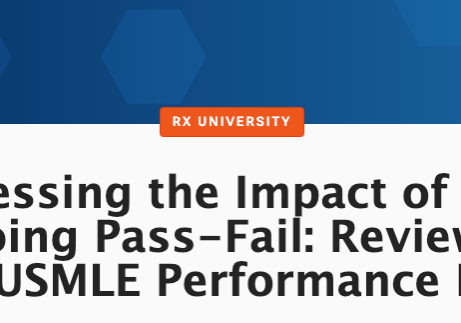By Edison Cano
 A few years back, I thought the quest for a residency spot in the US was strictly dominated by scores and academic activities. While these are important, other aspects of increasing exposure to programs began to stand out. As in any career, I realized networking is of paramount importance in medicine, especially for IMG and FMG students.
A few years back, I thought the quest for a residency spot in the US was strictly dominated by scores and academic activities. While these are important, other aspects of increasing exposure to programs began to stand out. As in any career, I realized networking is of paramount importance in medicine, especially for IMG and FMG students.
The rationale behind networking is simple: most of us are looking for opportunities to break into the US. Broadly speaking, that usually includes research, an observership, and ultimately, a residency. After spending several years in medical school outside the US, little can be gleaned just from the name of our med school, research, letters of recommendation from our home country and even USMLE scores. We need to have established relationships so residency directors know who we are.
Define your network. You need to think based on your plans. If you are looking for an academic setting or a research opportunity, then the most important people on your list should be researchers, professors, and faculty from your target programs. Attending physicians who are foreign graduates are almost always willing to help.
People that could introduce you to the right people include teachers or mentors familiar with the US medical system, even family and friends. If none of these seems possible, introducing yourself via e-mail is a good idea. Just be sure to be respectful and phrase your e-mail proficiently.
Keep them close. Keep in touch with people who genuinely showed an interest in helping you. During exam preparation, keep them up-to-date on your scores and academic activities. If you are going to ask for recommendation letters, let them know in advance. By early September, make sure you let everyone (in your network list) know that you will apply to their institutions. You may also ask them for suggestions on residency programs friendly to out-of-country applicants.
Always have an updated CV. Most often, you will need a standard CV, but if somebody asks for your USMLE scores, you can tailor your CV to give priority to the scores and other necessary sections. Here is an example of a medical CV provided by the Association of American Medical Colleges.
Have your own business cards. Business cards add a nice touch of professionalism for very little investment. Avoid awkward moments by exchanging business cards instead of writing down email addresses while people are talking to you. Generally speaking, include your name, university, e-mail address, and phone number. You can find free templates and printing services at Staples or Office Depot.
Be active in networking. Use meetings and conferences to help grow your network. Attend specialty meetings in the field you are interested in and focus on meeting people. Other students and physicians are often open to engaging in conversation (the whole point of a meeting!). I have heard several stories from people who obtained research opportunities from someone they met a meeting. Don’t be afraid of not being good with interpersonal skills; meetings are an excellent place to start working on that as well.
I hope you find this post useful. If you have a recommendation, share it below!




That was a useful one! Thanks a lot! 😉